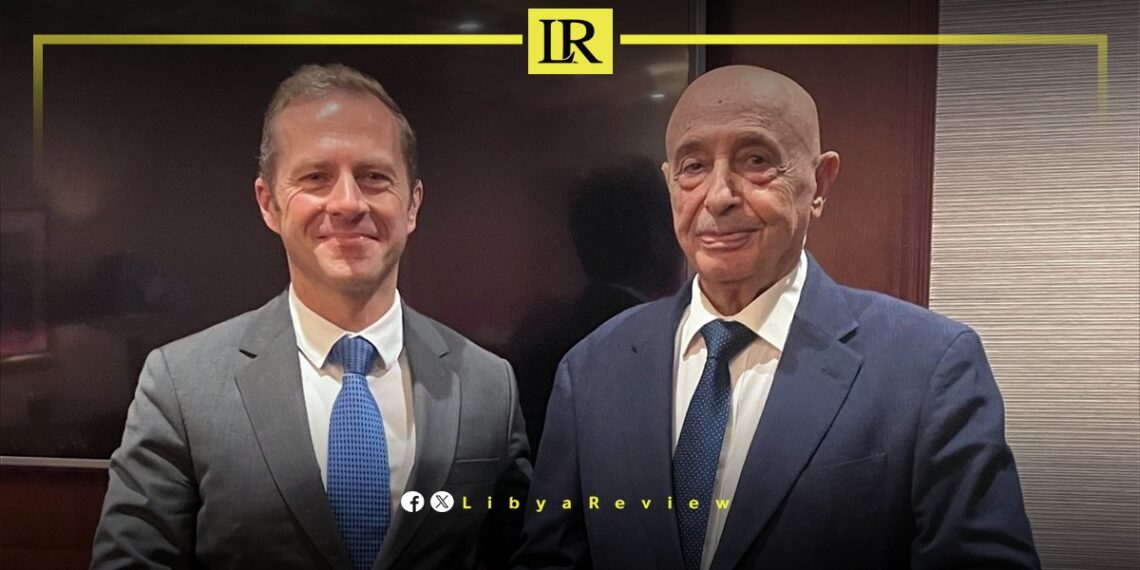On Monday, Libyan House of Representatives (HoR) Speaker Ageela Saleh met with French President Emmanuel Macron’s Special Envoy to Libya, Paul Soler, to discuss potential solutions to the ongoing political deadlock in Libya. The meeting focused on strategies to maintain stability, security, and the sovereignty of Libya.
According to a statement released by the French Embassy, the discussions were part of a broader diplomatic effort to resolve Libya’s prolonged political impasse. Soler’s visit to Libya included a series of meetings with various political stakeholders, aiming to forge a path toward national reconciliation and stability.
In September, Soler engaged in extensive talks with Libyan political figures, including a significant meeting with Saleh. During these discussions, the French envoy emphasized the importance of Libya’s sovereignty and the urgent need to finalize a constitutional framework. He stressed the necessity of holding presidential and parliamentary elections promptly, reflecting the aspirations of the Libyan people.
Libya has been embroiled in a complex political crisis since the fall of Muammar Gaddafi’s regime in 2011. The country is currently divided between rival administrations in the east and west, each backed by different militias and foreign powers. The House of Representatives, based in Tobruk and led by Ageela Saleh, and the Government of National Unity (GNU) in Tripoli, have struggled to reach a consensus on a unified governance structure.
The international community, including the United Nations and the European Union, has been actively involved in mediating the conflict, urging Libyan leaders to pursue dialogue and compromise. The road to stability has been fraught with challenges, including intermittent violence, economic instability, and the influence of external actors.
In recent months, there have been renewed efforts to bridge the divide between the eastern and western factions. The establishment of a constitutional basis for elections has been a contentious issue, with disagreements over electoral laws and eligibility criteria stalling progress. However, the involvement of international diplomats like Paul Soler indicates a sustained commitment to facilitating a political resolution.
France, along with other EU members, has reiterated its support for a sovereign and unified Libya. The French government’s diplomatic engagements are part of a broader strategy to foster stability in the Mediterranean region, addressing issues such as migration, security, and economic development.


